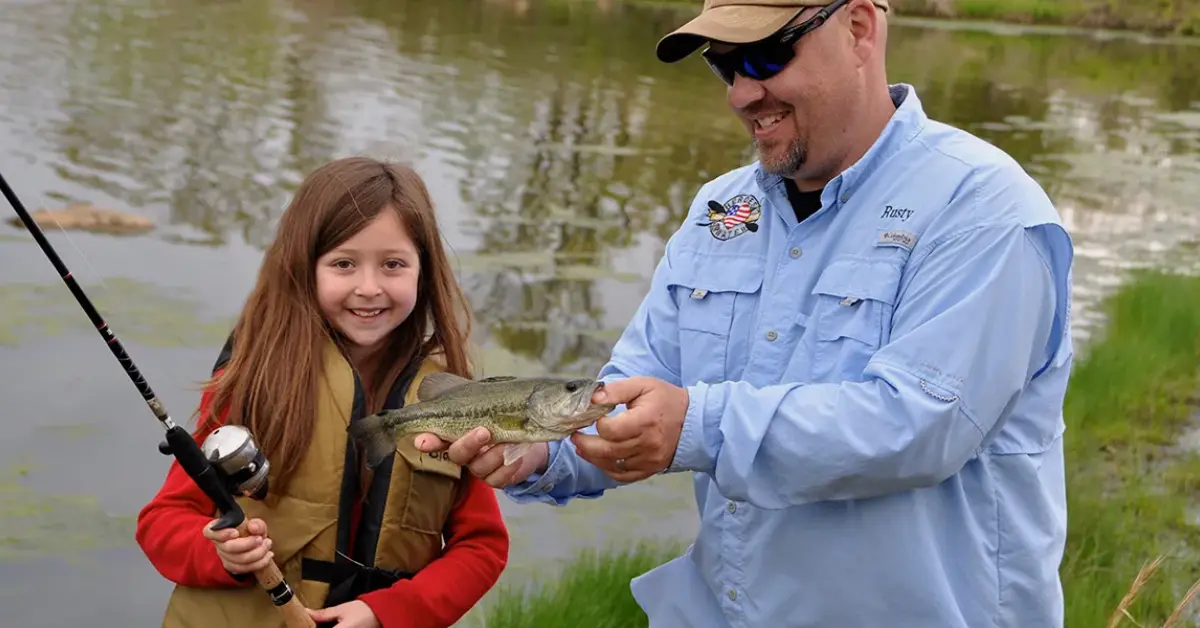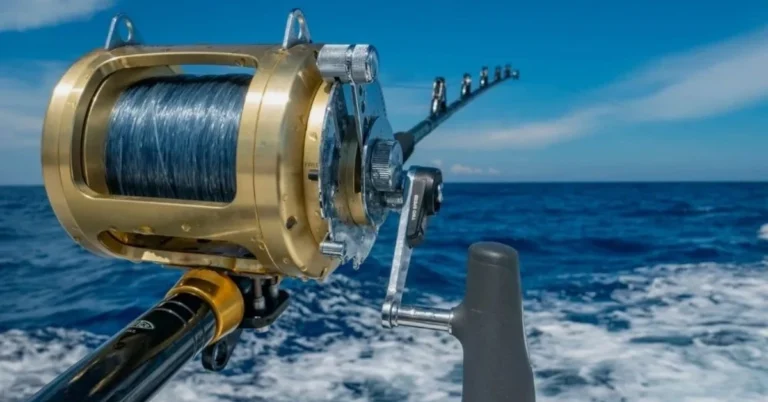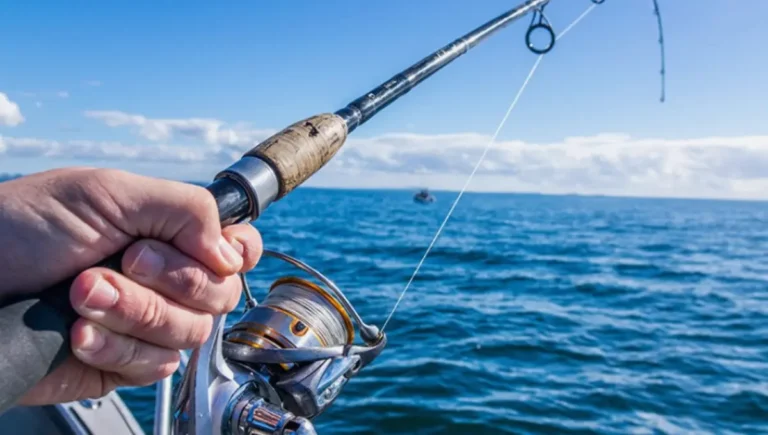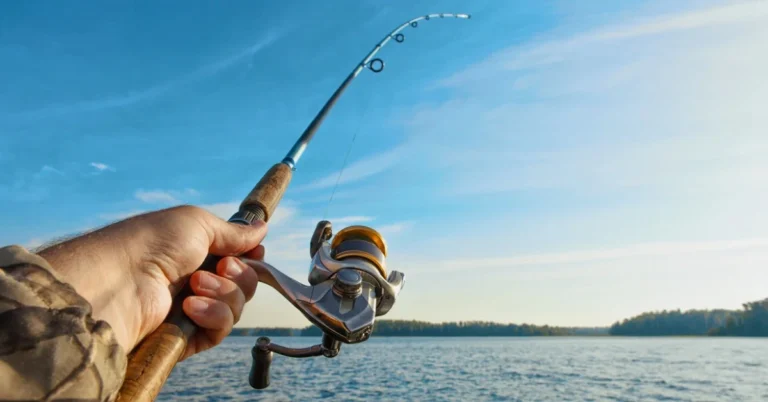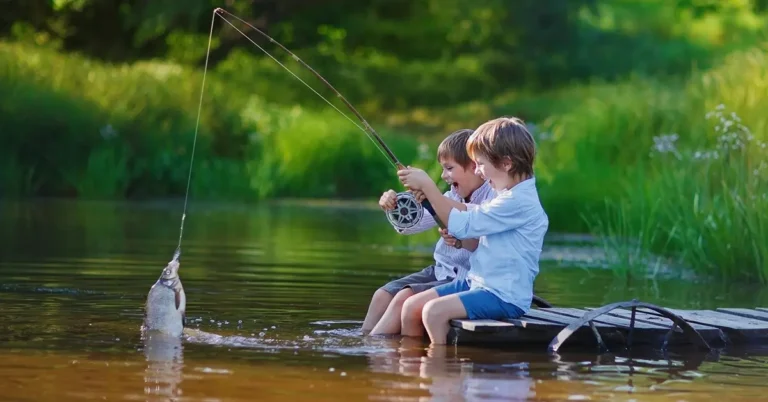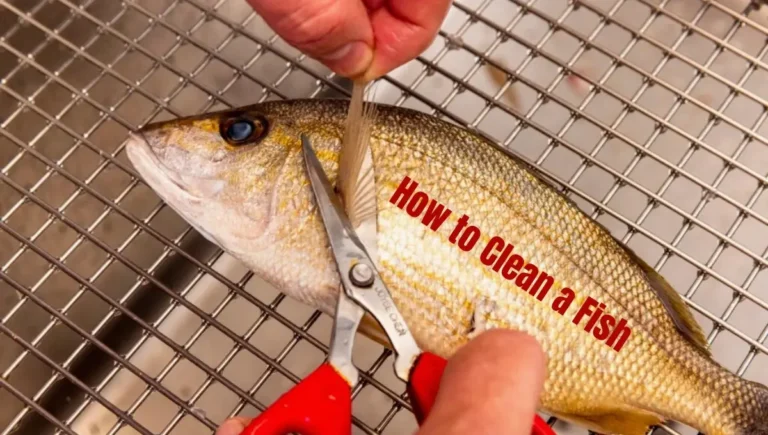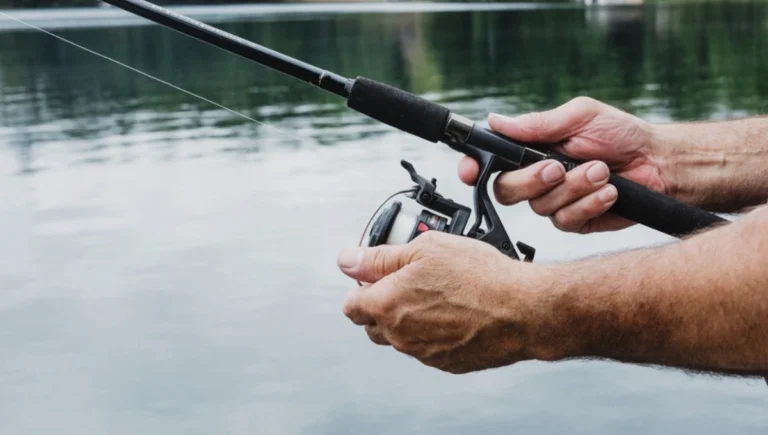10 Tips For Fishing To Help You Fish Better
Here are ten essential tips to enhance your fishing skills and boost your success on the water. Whether you’re a novice angler or a seasoned veteran, these practical pointers will help you fish more effectively and increase your chances of landing the big one.
From selecting the right bait to mastering casting techniques, these strategies are designed to improve your fishing experience and maximize your catch. Dive into these expert tips and elevate your fishing game to the next level!
Also Read: How to Clean a Fish
Tips For Fishing To Help You Fish Better
| Name | Quick Answer |
| Handling Fish | Only handle fish with wet hands to avoid damaging their protective slime coating. |
| Equipment: | Bring along nail clippers to cut the fishing line if needed. |
| Boat Fishing | Don’t start fishing from a boat if you’re a beginner. Stick to land initially. |
| Stringing Fish | Don’t string fish through their gills, as it can hurt and kill them. |
| Bait Size: | Use smaller bait so more fish species can take the hook. |
| Noise | Minimise noise like splashing when fishing so as not to scare fish away. |
| Baits and Lures: | Match your baits and lures to what fish are feeding on for that season. |
| Live Bait | Using live bait like worms or crickets can increase your catch. |
| Hooks | Regularly sharpen your hooks for maximum hook penetration and catch rate. |
| Lure Scent: | Make your artificial lures scentless so they don’t deter fish from biting. |
1. Only Handle Fish With Wet Hands
Avoid touching the fish with your bare hands, especially when handling them, to remove the hook or prepare them for cooking. Fish have a protective layer of slimy mucus that keeps them safe from harm and sickness.
Handling them with dry hands can strip away this layer, making them vulnerable to illness or injury, even if you plan to release them. To keep the fish clean and healthy, wet your hands before handling them, whether releasing or preparing them for cooking. This simple step can make a big difference in preserving the fish’s well-being and ensuring a tasty meal.
2. Bring Along Nail Clippers.
Before heading out for fishing, pack a pair of nail clippers. They’re small and won’t require much space, but they’ll be handy when on the water. Nail clippers are great for quickly cutting fishing lines and are even better than scissors.
They’re less likely to get lost, easier to handle, and safer to use without accidentally cutting yourself. So, don’t forget to bring nail clippers along on your fishing trips—they’ll make cutting lines a breeze and prepare you for any fishing situation.
3. Don’t Start With Boat Fishing
If you’re new to fishing, it’s wise to start with shore fishing rather than jumping straight into boat fishing. There are several reasons for this. Firstly, shore fishing is more straightforward because you only need to focus on fishing, whereas boat fishing requires navigating the boat.
Secondly, boat fishing may seem easy, but it can be challenging to balance fishing and steering if you’re not experienced with both. It’s better to wait until you’re sure about your interest in fishing before investing in a boat. Instead, consider renting a fishing boat for a day of fun until you’re ready to commit to owning one.
4. Don’t String Fish Through The Gills
Beginners sometimes make the mistake of stringing their catch through the gills. Instead, it’s better to string the fish through the mouth.
This is because stringing through the gills can cause the fish to die faster, so it might not be as fresh when you bring it home. So, to keep your catch fresher longer, always string it through the mouth rather than the gills.
5. Use Smaller Bait
If your bait keeps getting taken without catching fish, try using smaller bait. Similarly, smaller bait is more accessible for fish to snatch off your hook than larger bait.
So, switching to smaller bait can help you catch more fish by making it harder for them to steal it without getting hooked.
6. Minimise Noise When Fishing
Keep quiet and avoid making unnecessary noise when fishing. This means refraining from playing loud games on your phone or whistling.
Fish have susceptible ears, and loud noises can startle them and drive them away from your fishing spot. So, by staying quiet, you can increase your chances of catching fish without scaring them off.
7. Make Your Baits And Lures Seasonal
Using the right baits and lures is essential, depending on your fishing season. Just like we dress differently for each season, fish also change their behavior accordingly. For example, some fish stay near the surface in summer for warmth, while others go deeper to cool off.
During winter, fish are usually more selective and less active. So, using more enticing baits, like finesse worms, is crucial. A jig is also practical because it can be used at various depths. Remember to have a variety of baits and lures for each season to increase your chances of catching fish.
8. Use Live Bait
If you’re low on money, consider using live bait. You can catch live bait like worms or small fish, saving you money.
It’s free to find live bait like crickets or worms in places with grass, making it an intelligent choice for anglers on a tight budget.
9. Sharpen Your Hooks
Before you head out to fish, sharpen your hooks using a fishing hook file if you notice they’re getting dull. Sharp hooks are crucial for catching fish because they penetrate the fish’s mouth better.
Dull hooks won’t go in deep enough, causing you to miss out on catches. So, keep your hooks sharp to increase your chances of hooking fish successfully.
10. Make Your Lures Scentless
Before fishing, ensure your lures are scent-free. An excellent way to do this is by washing your hands with lava soap before handling the lures. Fish have strong senses of smell, so they won’t be attracted to lures that have a scent, like sunscreen. So, keep your lures scent-free to increase your chances of attracting fish.
Which fish are better for nutrition: pond, river, or sea?
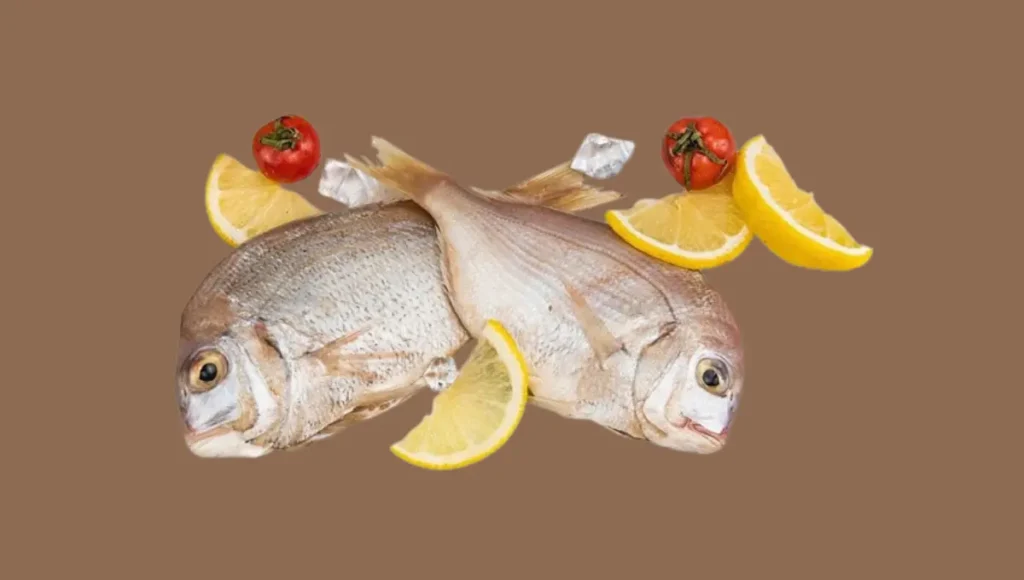
The nutritional value of fish can vary depending on their habitat, but generally, all types of fish are nutritious and provide essential nutrients like protein, omega-3 fatty acids, and vitamins.
Pond fish, such as catfish and tilapia, are often farmed and can be a good source of protein and omega-3s. However, their nutritional content may vary depending on the feed they’re given and the conditions of the pond.
River fish, like trout and salmon, typically live in freshwater and are known for their high omega-3 content. Additionally, they offer a substantial protein content along with essential vitamins.
Sea fish, including tuna, cod, and mackerel, are abundant in omega-3 fatty acids and excellent protein sources. However, some seafarers may contain higher levels of mercury or other contaminants, so consuming them in moderation is essential.
How can I get better at fishing?
Improving your fishing skills takes practice, patience, and a willingness to learn. Here are the best tips to get better at fishing:
Frequently Asked Questions
Conclusion
Mastering the art of fishing requires knowledge, skill, and patience. By following these ten tips, you can significantly improve your fishing experience and increase your chances of success on the water. Remember to use the right bait, pay attention to the weather, practice casting, and observe fish behavior.
Additionally, prioritize patience, respect fishing regulations, and the environment, and continue learning from others. With dedication and practice, you’ll become a better angler and develop a deeper appreciation for the natural world and the joy of fishing.
